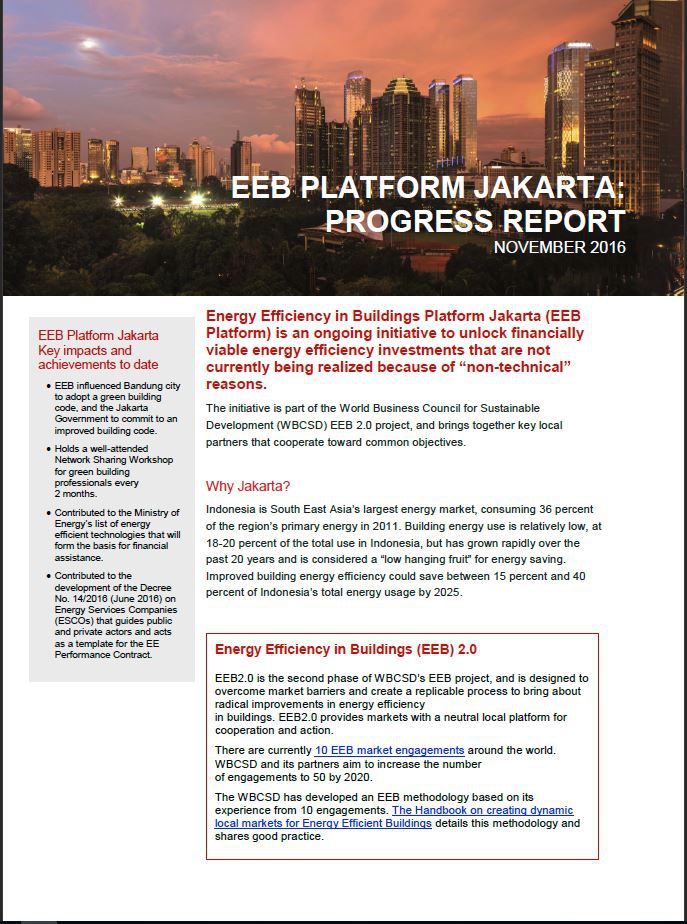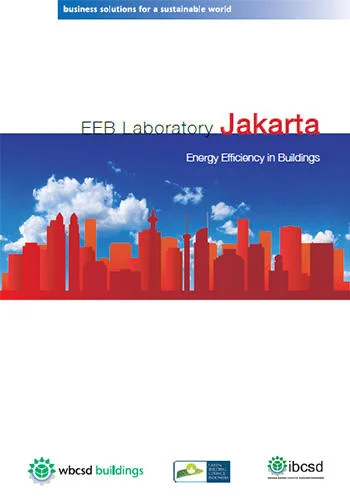Market Engagement
Indonesia is South East Asia’s largest energy market, consuming 36% of the region’s primary energy in 2011. Building sector energy is relatively low, at 18-20% of the total use in Indonesia, but it has grown rapidly over the last 20 years and is considered as “low hanging fruit” for energy saving.Improved energy efficiency of buildings could save between 15% and 40% of energy by 2025.
Post EEB lab activities
The action plan designed to significantly improve the energy efficiency in Jakarta’s buildings was released on January 26, 2016 by the World Business Council for Sustainable Development (WBCSD) together with the Indonesia Business Council for Sustainable Development (IBCSD) and Green Building Council Indonesia (GBC Indonesia).
The action plan is grouped into four focus areas:

Raising awareness and understanding of the multiple benefits of energy efficiency in buildings: help business set up energy efficiency programs and promote transparency with online data collection and improve sharing information.
Workforce capacity – Training and Skills: encourage the development of certification programs and improve knowledge on life-cycle cost analysis.
Financing energy efficiency solutions: help banks to improve their understanding of energy efficiency models and support the development of innovative financing mechanisms or incentives.
The EEB platform welcomes participants from any interested stakeholders. For further information, please contact Idris Sulaiman, coordinator of Energy Efficiency in Buildings – Platform, Jakarta on behalf of GBC Indonesia: idrisfsulaiman@gmail.comEach focus area will bring together local public and private sector leaders who will first prioritize the actions to be implemented. The newly created Energy Efficiency in Buildings – Jakarta platform will provide overall coordination for the four focus areas. For the specific short and long term goals for these focus areas please refer to the Progress Report.Policy and regulation: build dialogue between business and government to provide a direct communication channel and provide recommendations on streamlining policy and regulation.
Outline

